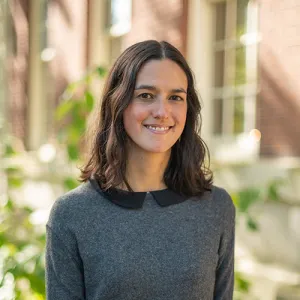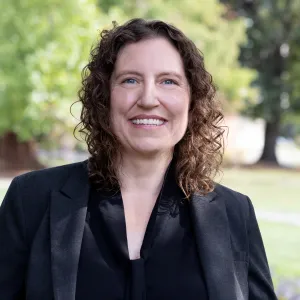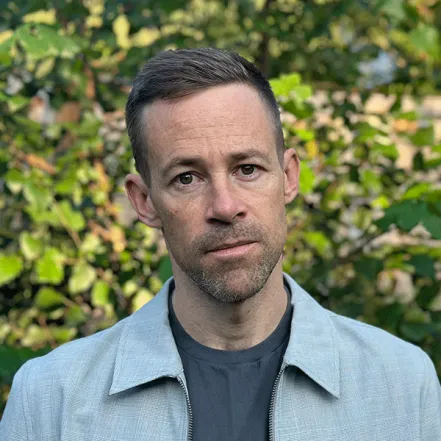
Anthropology
Smith’s anthropology offerings promote awareness and understanding of ethnic and cultural diversity on a global scale as well as in the United States. We challenge students’ assumptions about their cultures by introducing them to societies and social groups whose principles and prejudices are different from their own. As a result, students carry a greater sensitivity to the cultural dimension of human experience in their work and lives.
Department Updates
Welcome to the Department of Anthropology
Are you considering a major in Anthropology? Please reach out to Associate Professor Colin Hoag (choag@smith.edu) for more information.
Requirements & Courses
Goals for Majors in Anthropology
Students should have:
- an understanding of the breadth of the subfields of cultural anthropology and/or archeology
- knowledge of the research methods used by anthropologists
- an understanding of the concept of culture and how cultural processes work in the production of meaning
- knowledge of the theoretical foundations of the discipline
- knowledge of the ethical implications of research
- the ability to apply their training to real-world situations both inside and outside of academia
Student Learning Outcomes
All majors in anthropology are expected to demonstrate:
- The ability to communicate in writing and in oral presentations in classrooms and other settings
- The ability to conduct library or document based research
- The ability to read and interpret professional publications in anthropology
- Understanding of the links among anthropological data, method and theory
- Understanding of the possible impacts of anthropological knowledge on broader questions of policy, political participation, and the allocation of diverse tangible and intangible resources
Anthropology Major
Requirements
Eleven courses
- ANT 130, ANT 200 and ANT 233
- One senior seminar in anthropology taken at Smith.
- Four additional anthropology courses.
- Three related courses which may be in anthropology or in fields linked to the student’s interests, such as language, history or STEM with approval of adviser.
- Students must demonstrate competency in a foreign language equivalent to four semesters of college-level courses.
- A maximum of two language courses may count toward the three related courses for the major.
- Students who wish to focus on biological anthropology may replace the language requirement with two courses in mathematics or natural science above the 100-level if they serve as an essential foundation for advanced work in this sub-field.
- Any alternative for the language requirement should be developed in consultation with an adviser and must be part of an overall plan of studies approved by the entire department.
Honors
Please consult the director of honors or the departmental website for specific requirements and application procedures.
Anthropology Minor
Requirements
Six courses (24 credits)
- Core course: ANT 130
- Five electives that can include Smith courses with the ANT subject code, or cross-listed with ANT, or other courses approved by the Smith minor advisor.
Courses
Students are strongly encouraged to complete ANT 130 before enrolling in intermediate courses.
ANT 130 Introduction to Cultural Anthropology (4 Credits)
What does it mean to be human? What is culture, and how does it shape the way humans see the world? Why are some forms of cultural difference tolerated, while others are not? As the holistic study of the human experience, cultural anthropology addresses these questions in a world shaped by human migration, climate change, capitalist extraction and global inequality. This course provides an overview of the discipline’s history, its distinctive method of ethnography and the breadth of topics it addresses, including public health, race, the environment, gender, language, nationalism, software design, the body, music, cities, government and more. Restrictions: First-years and sophomores only. Enrollment limited to 25. Social Science
Fall, Spring
ANT 135/ ARC 135 Introduction to Archaeology (4 Credits)
Offered as ANT 135 and ARC 135. This course studies past cultures and societies through their material remains and explores how archaeologists use different field methods, analytical techniques and theoretical approaches to investigate, reconstruct and learn from the past. Data from settlement surveys, site excavations and artifact analysis are used to address economic, social, political and ideological questions across time and space. This course is taught from an anthropological perspective, exploring key transitions in human prehistory, including the origins of food production, social inequality and state-level societies across the globe. Relevance of archaeological practice in modern political, economic and social contexts is explored. Restrictions: First-years and sophomores only. Enrollment limited to 30. Natural Science; Social Science
Fall
ANT 200 Colloquium: Research Methods in Anthropology (4 Credits)
This course introduces students to the variety of methods of inquiry used for research in anthropology. Throughout the semester, students are introduced to methods of locating and analyzing information and sources, developing research questions and writing. Normally taken in the sophomore or junior year. Prerequisite: ANT 130. Restrictions: Anthropology majors only. Enrollment limited to 20. Instructor permission required. Social Science
Fall
ANT 212 On Botanophilia (4 Credits)
There are many ways to love plants. Home gardeners design with them, healers study their properties to treat patients with them, field botanists learn ornate vocabularies to identify them, poets sound their symbolic depths. What do these different forms of botanophilia say about the human condition and its interspecies intimacies? Living amidst our planet’s sixth mass extinction event, more botanophilia is needed and needed yesterday. Putting love, joy and community forward as urgent political affairs, this course asks how students might go about cultivating plant love for earthly survival. Social Science
Fall, Spring, Alternate Years
ANT 221 Global Archaeology: Method, Theory, and Practice (4 Credits)
This course features case studies from across the globe to explore the diversity of theoretical approaches to studying the past, the field, and lab methods used to analyze material culture, and the ethical considerations of archaeological practice. Students develop a solid foundation for evaluating and contextualizing archaeological research using insights from the humanities, social sciences, and STEM fields. Discussions of global archaeological practice address the roles and responsibilities of archaeologists in global heritage management, museum development, collaborative research with stakeholder groups, and public outreach.
Fall, Spring, Alternate Years
ANT 222 Science, Technology and Society in East Asia (4 Credits)
East Asia’s innovations in science and technology in the 21st century cross the globe and shape everyday lives. At the same time, the burgeoning multi-disciplinary field of science and technology studies in East Asia marks an expansion from its EuroAmerican origins. This course introduces students to themes and questions at the intersection of these theoretical and practical interventions using case studies from the region, from everyday technologies like smartphones to scientific projects like genetic engineering. The class uses these case studies to develop ways of interpreting science and technology as local, transregional and transnational engagements. Restrictions: Not open to first-years. (E) Social Science
Fall, Spring, Variable
ANT 224/ ENV 224 Anthropos in the Anthropocene (4 Credits)
Offered as ANT 224 and ENV 224. Anthropology seeks to understand human life in all its complexity, but what constitutes the human is far from straightforward. This course examines the changing ways that Anthropos is being understood in an era of rapid global climate change and our planet’s sixth mass extinction event, both driven by human activities. We review perspectives on the relationship between humans and their environment from various cultural perspectives, considering how they engage notions of race, class, and gender, and what they imply for nature conservation. Topics include modernity, pets, cyborgs, kinship, symbiosis, extinction, species invasions, settler colonialism and the Anthropocene concept. Enrollment limited to 30. Social Science
Fall, Spring, Variable
ANT 225 Language and Culture (4 Credits)
This course surveys the social and cultural contexts of languages throughout the world. It examines the ways in which a human language reflects the ways of life and beliefs of its speakers, contrasted with the extent of language's influence on culture. The course focuses on topics such as identity, social factors of language use, language vitality, language politics and issues of globalization. Each language is a repository of history and knowledge, as well as the culture, of a group of speakers. Languages and cultures from around the world are discussed, with special focus on endangered languages. Enrollment limited to 40. (E) Social Science
Fall, Spring, Variable
ANT 226 Archaeology of Food (4 Credits)
This course explores (1) how and why humans across the globe began to domesticate plant and animal resources approximately 10,000 years ago, and (2) new directions in the archaeology of food across time and space. The first part of the semester focuses on the types of archaeological data and analytical methods used to understand the agricultural revolution. Case studies from both centers and noncenters of domestication are used to investigate the biological, economic and social implications of changing foodways. During the remainder of the semester, emphasis is placed on exploring a number of food-related topics within archaeology, such as the relationship between agriculture and sedentism, food and gender, the politics of feasting, and methods for integrating archaeological and ethnographic approaches to the study of food across the globe. Enrollment limited to 30. Social Science
Fall, Spring, Variable
ANT 228 Animals and Anthropology (4 Credits)
Are humans truly different than other animals? The animal turn in cultural anthropology presents possibilities for questioning the longstanding assumption of the distinction between humans and animals. How might the conception of humanity change when animals are centered alongside humans in ethnographic research? What ramifications and possibilities are revealed? This course explores the myriad of human relationships with animals, ranging from the material, economic, political, emotional, embodied, social, and spiritual to consider these questions. Restrictions: Not open to first-years. Enrollment limited to 25. (E) Social Science
Fall, Spring, Alternate Years
ANT 229 Africa and the Environment (4 Credits)
In Western discourses, African environments are defined by violence, famine and degradation. These characteristics are depicted as symptoms of an African resistance to Western values such as private property, democracy and environmentalism. This course encourages students to think critically about such portrayals by learning about specific environments in Africa and how humans have interacted with them across time. The syllabus is anchored in cultural anthropology, but includes units on human evolution, the origins and spread of pastoralism, the history of colonial conservation science and more. Discussions covered include gender, race, land grabbing, indigenous knowledge, the commons, the cattle complex, desertification, oil, dams and nationalism. Natural Science; Social Science; Historical Studies
Fall, Spring, Variable
ANT 233 History of Anthropological Theory (4 Credits)
This course reviews the major theoretical approaches and directions in cultural anthropology from the late 19th century to the present. These approaches include social organization and individual agency; adaptation and evolution of human culture; culture and personality, economic behavior, human ecology; the anthropology of development and change; and postmodern interpretation. The works of major anthropologists are explored, including Franz Boas, Bronislaw Malinowski, Margaret Mead, Evans-Pritchard, Claude Levi-Strauss, Marvin Harris, Eric Wolf, Clifford Geertz, Sherry Ortner and others. Prerequisite: ANT 130 or equivalent. Restrictions: Not open to first years. Social Science
Spring
ANT 234 Culture, Power and Politics (4 Credits)
This course is a general introduction to anthropological analysis of politics and the political. Through a broad survey of anthropological texts and theories, this course explores what an ethnographic perspective can offer to the understandings of power and government. Special emphasis is placed on the role of culture, symbols and social networks in the political life of local communities. Examples are drawn from a number of case studies in Africa, East Asia, Latin America and the United States, and range in scale from studies of local politics in small-scale societies to analyses of nationalism and political performance in modern nation-states. Enrollment limited to 30. Social Science
Fall, Spring, Alternate Years
ANT 237 Monuments, Materials and Models: The Archaeology of South America (4 Credits)
This course offers an overview of the archaeology of South America, from the earliest traces of human occupation over 10,000 years ago to the material culture of the present. The course focuses on how archaeologists use data collected during settlement surveys, site excavations and artifact analysis to reconstruct households and foodways, social and political organization, and ritual and identity over the millennia. Discussions also include the relevance of the past in contemporary indigenous rights movements, heritage management strategies and nationalist projects. Natural Science; Social Science
Fall, Spring, Alternate Years
ANT 238 Anthropology of the Body (4 Credits)
Anthropology vitally understands bodies as socially meaningful, and as sites for the inculcation of ethical and political identities through processes of embodiment, which break down divides between body as natural and body as socially constituted. This course engages these anthropological understandings to read how bodies are invoked, disciplined and reshaped in prisons and classrooms, market economies and multicultural democracies, religious and ethical movements, and the performance of gender and sexuality, disease and disability. Through these accounts of the body as an object of social analysis and as a vehicle for politics, students learn fundamental social theoretical and anthropological tenets about the embodiment of power, contemporary politics as forms of "biopolitics" and the deconstruction of the normative body. Social Science
Fall, Spring, Alternate Years
ANT 240 Museum Anthropology (4 Credits)
Museums are dynamic sites of collecting, conserving, analyzing, interpreting, and displaying cultural objects, both ancient and contemporary. This course uses insights from cultural anthropology, archaeology, and heritage studies to explore the history of museums, their diverse formats and audiences, the ethical and legal frameworks guiding their operations, and ongoing debates about their roles as sites of cultural contact, conflict, reconciliation, and restitution. Students gain hands-on experience working with Five College museum collections–primarily archaeological materials from Latin America–and visit other area museums during the semester. Enrollment limited to 30. Social Science
Fall, Alternate Years
ANT 242 Cook, Drink and Eat: The Anthropology of Food (4 Credits)
Drawing on a holistic, multidisciplinary perspective, this course considers food as a lens through which to examine issues of identity such as gender, family, community, nationality, religion and class. Food and drink are further considered in terms of how they sustain human life. The class explores the journey of food production, preparation, distribution and consumption as well as food scarcity, security and sovereignty. Local, national and global networks are examined in an attempt to better understand the cultural and nutritional importance of food and the role it plays in socioeconomic and political relationships. Ethnographic research is conducted in the local community. Social Science
Fall, Spring, Variable
ANT 247 History of Race Science and Scientific Racism (4 Credits)
Today there is a consensus in physical anthropology that there is no conclusive biological basis to the groupings commonly referred to as “races.” That is, “racial” categories are constituted socially, and naturalized through different cultural processes. However, anthropology has also been part of a long history of seeking biological bases for racial difference, and of using these supposed biological bases to justify different hierarchies and forms of exploitation. This course surveys some of the key moments of this history, focusing on how different “scientific” theories of race have impacted the lives of marginalized groups. Special emphasis is placed on how traces of these older, debunked theories of race continue to emerge in ways that impact public discourse. Social Science; Historical Studies
Fall, Alternate Years
ANT 248 Medical Anthropology (4 Credits)
This course looks at the cultural construction of illness by examining systems of diagnosis, classification, and therapy in both non-Western and Western societies. Special attention is given to the role of the traditional healer, the anthropological contribution to international health care, and the training of physicians in the United States. Restrictions: Not open to first years. Enrollment limited to 30. Natural Science; Social Science
Fall, Spring, Alternate Years
ANT 252/ SWG 252 Feminist Anthropology (4 Credits)
Offered as SWG 252 and ANT 252. This course explores key issues and debates in feminist anthropology, focusing on how feminist theory and methods have transformed the discipline. Rather than presenting facts about sex and gender across cultures, it emphasizes developing a feminist lens to critically examine how categories of sex and gender intersect with race, ethnicity, class, indigeneity, and nationality. The first half covers foundational theories and debates, while the second half applies these ideas to feminist ethnographies, exploring topics like gender identities, kinship, embodiment, and more. Students connect academic concepts with popular culture and personal experiences to critically analyze the cultural construction of gender. Prerequisite: ANT 130 or SWG 150. Enrollment limited to 30. (E) Social Science
Fall, Spring, Alternate Years
ANT 257 Urban Anthropology (4 Credits)
This course considers the city as both a setting for anthropological research and as an ethnographic object of study in itself. The class aims to think critically about the theoretical and methodological possibilities, challenges and limitations that are posed by urban anthropology. Students consider concepts and themes such as urbanization and migration; urban space and mobility; gender, race and ethnicity; technology and virtual space; markets and economies; citizenship and belonging; and production and consumption. Enrollment limited to 40. Social Science
Fall, Spring, Alternate Years
ANT 258/ MUS 258 Performing Culture (4 Credits)
Offered as MUS 258 and ANT 258. This course analyzes cultural performances as sites for the expression and formation of social identity. Students study various performance genres such as rituals, festivals, parades, cultural shows, music, dance and theater. Topics include expressive culture as resistance; debates around authenticity and heritage; the performance of race, class and ethnic identities; the construction of national identity; and the effects of globalization on indigenous performances. Enrollment limited to 30. Arts; Social Science
Fall, Spring, Alternate Years
ANT 263/ LAS 263 Anthroplogy of Conflict, Rights, and Resistance in Latin America (4 Credits)
Offered as LAS 263 and ANT 263. This course offers an ethnographic and analytical exploration of contemporary Latin America, focusing on anthropological perspectives in politics and law. It examines forms of resistance against violence and inequality in the region, analyzing how ideas of rights and justice intersect with complex power structures. The course highlights collective struggles that reshape social experiences, the public sphere, and governance. It also delves into issues of race, ethnicity, gender rights, and Indigenous resistance, reflecting on Latin America's current context of violent peace and its implications for social change and transformation. Prerequisite: ANT 130 or LAS 150. Enrollment limited to 30. (E) Social Science
Fall, Spring, Variable
ANT 269 Indigenous Cultures and the State in Mesoamerica (4 Credits)
This course is a general introduction to the relationship between indigenous societies and the state in Mesoamerica. Taking a broad historical perspective, the course explores the rise of native state-level societies, the transformations that marked the process of European colonization, and the relationship of local indigenous communities to post-colonial states and transnational social movements. Texts used in the course place special emphasis on continuities and changes in language, social organization, cosmology, and identity that have marked the historical experience of native groups in the region. Social Science
Fall, Spring, Alternate Years
ANT 274 The Anthropology of Religion (4 Credits)
What can anthropologists teach us about religion as a social phenomenon? This course traces significant anthropological approaches to the study of religion, asking what these approaches contribute to our understanding of religion in the contemporary world. Topics include religious experience and rationality; myth, ritual and magic; rites of passage; function and meaning; power and alienation; religion and politics. Readings are drawn from important texts in the history of anthropology and from contemporary ethnographies of religion. Social Science
Fall, Spring, Alternate Years
ANT 300 Ethnographic Design (4 Credits)
This course harnesses students’ current and previous coursework to address a real life ethnographic design problem. Working in conjunction with students enrolled in ANT 200, students help to design and carry out a qualitative research project led by an anthropology faculty member and gain insight into anthropology’s practical applications. Students are expected to take leadership roles, think creatively and concretely, work well collaboratively and see projects through to completion. Enrollment limited to 10. Instructor permission required.
Fall
ANT 317 Seminar: The Air We Breathe--An Anthropology of Atmosphere (4 Credits)
From air pollution to atmospheric carbon, from extreme weather events to respiratory viruses, the earth's atmosphere is currently intensely palpable. While these topics are typically the purview of natural scientists, they are also cultural phenomena worthy of anthropological exploration. This seminar explores this contemporary atmospheric moment while situating it in a historical context with readings that provide a multidisciplinary perspective traversing the humanities, social sciences, and natural sciences. Readings draw from anthropology, the history of science, literary studies, climate science, botany, and more. Discussions include wind, breathing, evapotranspiration, climate change, and utopia. Restrictions: Juniors and seniors only. Enrollment limited to 12. Instructor permission required. Natural Science; Social Science
Fall, Spring, Alternate Years
ANT 340af Seminar: Topics in Anthropology- Anthropology of the Future (4 Credits)
In a landscape transformed by the pandemic, climate change, tightening borders, surveillance, and artificial intelligence technologies, what form will anthropology assume and what role will it play in the near future? This course focuses on three major forces – health, climate change, and technology – to show how the discipline is being transformed by them. The course also examines how anthropology is responding by treading a delicate balance between domestic and international issues and specialist knowledge and non-specialist audiences in these domains to rearticulate its relevance for future societies. Restrictions: Juniors and seniors only. Enrollment limited to 12. Instructor permission required. Social Science
Fall, Spring, Variable
ANT 340et Seminar: Topics in Anthropology-Ethnographic Writing (4 Credits)
Anthropological writing must convey the life-worlds of people and the textures of ethnographic encounters and fieldwork, and refine anthropological theories. How can writing do all of this at once? And as this course crafts a narrative, what does it leave out? Is ethnographic “reality” really described or are anthropological fictions created? Why then does this class look to ethnographic accounts to understand societies and cultures? Anthropological writing has dealt with these questions and more since its inception, but most profoundly since the 1980s. Students read pieces that reflect on and innovate with writing as anthropological praxis, and related issues of fact versus fiction, the politics of representation, narrative style, writing as a form of political action and the role of theory in the creation of knowledge. Restrictions: Juniors and seniors only. Enrollment limited to 12. Instructor permission required. Social Science
Fall, Spring, Variable
ANT 347pp Seminar: Topics in Anthropology-Pondering Pottery (4 Credits)
Pottery, both fragments and whole vessels, is ubiquitous in the archaeological record and provides insights into technological choices, shifting styles, food-related practices, economic relationships and many other aspects of past lifeways. This course focuses on how archaeologists collect, analyze, interpret and present information about pottery from diverse contexts across the globe. Students have the opportunity to conduct independent research on fragmentary and complete pottery vessels, and they also utilize ethnographic and historical studies of potters to expand the understanding of these practices today. Restrictions: Juniors and seniors only. Enrollment limited to 12. Instructor permission required. Social Science
Fall, Spring, Variable
ANT 352eu Seminar: Topics in Anthropology-Eugenics at Smith College (4 Credits)
This course is a research seminar based on the history of the eugenics movement and other forms of racial pseudo-science in the United States. After completing some general readings on the history of American eugenics, students develop individual research projects based on the rise, decline and lingering impacts of the movement. The focus in developing these projects is on materials stored in the Smith College Archives, which range from the papers of Harris Hawthorne Wilder, Morris Steggerda and other faculty who were involved in eugenics research to ephemeral materials that document the participation of Smith students in this research from the 1910s to the late 1930s. Restrictions: Juniors and seniors only. Enrollment limited to 12. Instructor permission required. Social Science
Fall, Spring, Variable
ANT 353cc Seminar: Topics in Anthropology-Cannabis as Catalyst (4 Credits)
Once maligned as a dangerous "gateway drug" and as a troubling sign of social decay, cannabis is increasingly regarded as a potent and future-focused remedy for a range of medical and social ills. This course considers this rapid and dramatic cultural, legal and political transformation and what it has to teach us about much broader social shifts and tensions. The study of cannabis is a starting point for thinking about a variety of crucial anthropological topics, including human-plant relations, legality and illegality, race and (in)justice, pharmaceuticals and botanical treatments, kinship and care, science and expertise, and disability activism. Restrictions: Juniors and seniors only. Enrollment limited to 12. Instructor permission required. Social Science
Fall, Spring, Variable
ANT 353dd Seminar: Topics in Anthropology-Disability and Difference (4 Credits)
Disability is both a universal human reality and a profoundly embodied, contested and situated experience. This course explores this tension from a range of methodological and theoretical perspectives, with an emphasis on innovative ethnographic work. The approach is insistently transnational and intersectional, taking into account how disabled selves and communities are shaped by geographical and historical context, racial and ethnic identity, class background, gender and sexuality. The course considers concepts and themes such as embodiment, citizenship and belonging, access and visibility, creativity, medicalization and diagnosis, politics and advocacy, and virtuality and technology. Restrictions: Juniors and seniors only. Enrollment limited to 12. Instructor permission required. Social Science
Fall, Spring, Variable
ANT 400 Special Studies (2-4 Credits)
For junior and senior majors. Instructor permission required.
Fall, Spring
ANT 404 SPECIAL STUDIES (4 Credits)
Instructor permission required.
Fall, Spring
ANT 430D Honors Project (4 Credits)
Department permission required.
Fall, Spring
ANT 432D Honors Project (6 Credits)
Department permission required.
Fall, Spring
Crosslisted Courses
AFR 202aa Colloquium: Topics in Africana Studies-Anthropology and the African Diaspora (4 Credits)
The African continent’s place as the cradle of humanity has made it central to Anthropology. However, Anthropology’s imperial origins have long put it at odds with the people of the African Diaspora. This course examines the complexities of the relationship between Anthropology and the African Diaspora. The course explores the African Diaspora as space, place, and identity; critically examines Anthropology’s history; explores the discipline’s core theories and thinkers; broadens students' thinking of the discipline’s canon; and examines key ethnographies of and from the African diaspora. Restrictions: AFR 202 may be taken for credit a total of three times with a different topic. Enrollment limited to 20. Social Science
Fall, Spring, Variable
AFR 366rs Seminar: Contemporary Topics in Africana Studies-Race, Sex & Tourism (4 Credits)
Tourism is often lauded as the key to economic development for many countries. However, scholarly work has shown that historical relationships to imperialism and colonialism impact how people and places experience tourism. This course introduces students to debates, methods and conceptual frameworks in the study of race, sex and tourism. Through a review of scholarly texts, tourism paraphernalia, films and travelogues, the course examines the social, political and ethical considerations inherent in multiple forms of tourism including eco-tourism, wellness or health, sun-sand-sea, heritage, dark and voluntourism in locales ranging from the Caribbean and the Americas to Africa and Europe. Restrictions: Juniors and seniors only. Enrollment limited to 12. Instructor permission required. Social Science
Fall, Spring, Variable
ANT 135/ ARC 135 Introduction to Archaeology (4 Credits)
Offered as ANT 135 and ARC 135. This course studies past cultures and societies through their material remains and explores how archaeologists use different field methods, analytical techniques and theoretical approaches to investigate, reconstruct and learn from the past. Data from settlement surveys, site excavations and artifact analysis are used to address economic, social, political and ideological questions across time and space. This course is taught from an anthropological perspective, exploring key transitions in human prehistory, including the origins of food production, social inequality and state-level societies across the globe. Relevance of archaeological practice in modern political, economic and social contexts is explored. Restrictions: First-years and sophomores only. Enrollment limited to 30. Natural Science; Social Science
Fall
ANT 224/ ENV 224 Anthropos in the Anthropocene (4 Credits)
Offered as ANT 224 and ENV 224. Anthropology seeks to understand human life in all its complexity, but what constitutes the human is far from straightforward. This course examines the changing ways that Anthropos is being understood in an era of rapid global climate change and our planet’s sixth mass extinction event, both driven by human activities. We review perspectives on the relationship between humans and their environment from various cultural perspectives, considering how they engage notions of race, class, and gender, and what they imply for nature conservation. Topics include modernity, pets, cyborgs, kinship, symbiosis, extinction, species invasions, settler colonialism and the Anthropocene concept. Enrollment limited to 30. Social Science
Fall, Spring, Variable
ANT 252/ SWG 252 Feminist Anthropology (4 Credits)
Offered as SWG 252 and ANT 252. This course explores key issues and debates in feminist anthropology, focusing on how feminist theory and methods have transformed the discipline. Rather than presenting facts about sex and gender across cultures, it emphasizes developing a feminist lens to critically examine how categories of sex and gender intersect with race, ethnicity, class, indigeneity, and nationality. The first half covers foundational theories and debates, while the second half applies these ideas to feminist ethnographies, exploring topics like gender identities, kinship, embodiment, and more. Students connect academic concepts with popular culture and personal experiences to critically analyze the cultural construction of gender. Prerequisite: ANT 130 or SWG 150. Enrollment limited to 30. (E) Social Science
Fall, Spring, Alternate Years
ANT 258/ MUS 258 Performing Culture (4 Credits)
Offered as MUS 258 and ANT 258. This course analyzes cultural performances as sites for the expression and formation of social identity. Students study various performance genres such as rituals, festivals, parades, cultural shows, music, dance and theater. Topics include expressive culture as resistance; debates around authenticity and heritage; the performance of race, class and ethnic identities; the construction of national identity; and the effects of globalization on indigenous performances. Enrollment limited to 30. Arts; Social Science
Fall, Spring, Alternate Years
ANT 263/ LAS 263 Anthroplogy of Conflict, Rights, and Resistance in Latin America (4 Credits)
Offered as LAS 263 and ANT 263. This course offers an ethnographic and analytical exploration of contemporary Latin America, focusing on anthropological perspectives in politics and law. It examines forms of resistance against violence and inequality in the region, analyzing how ideas of rights and justice intersect with complex power structures. The course highlights collective struggles that reshape social experiences, the public sphere, and governance. It also delves into issues of race, ethnicity, gender rights, and Indigenous resistance, reflecting on Latin America's current context of violent peace and its implications for social change and transformation. Prerequisite: ANT 130 or LAS 150. Enrollment limited to 30. (E) Social Science
Fall, Spring, Variable
Additional Programmatic Information
Choosing an Adviser
When you declare your major, you will be assigned a major adviser based on your class year. Please contact the chair of the department, Elizabeth Klarich (eklarich@smith.edu) before filling out your Declaration forms online. However, we encourage you to meet with all our faculty over the course of your time at Smith, particularly if their research interests overlap with your own.
Transfer Credit
You are welcome to take anthropology seminars off campus and they can count toward the major, but they may not replace a Smith class for the seminar requirement. The only exceptions will be for students with an established focus in biological anthropology or linguistics; since we do not offer seminars in these subfields, we will consider a petition to have the seminar requirement fulfilled off campus.
Foreign Language Requirement
Language is central to how people develop a worldview. Since anthropology is dedicated to the profound knowledge of cultures, language learning is a foundational skill. Majors must show a competency in one foreign language equivalent to four semesters of college-level classes. You may demonstrate this level of competency by completing language courses at the intermediate level or by certification from a language instructor. For languages that are not represented at Smith, you can select a qualified evaluator in consultation with your adviser.
Funding is available for majors seeking financial assistance in language instruction. See Nancy “Penny” Schwartz Fund under "Opportunities & Resources: Grants" below.
Biological Anthropology Exception
Students who focus their major in biological anthropology may replace the language requirement with two courses in mathematics and/or natural science if the courses serve as an essential foundation for advanced work in this subfield and are above the 100 level. Any alternative for the language requirement will be developed in consultation with an adviser and must be part of an overall plan of studies approved by the entire department. The alternative to the language requirement is considered exceptional and must be justified by a well-considered curricular plan.
Special Studies
A junior or senior wishing to pursue individualized study that is not available in another course, or to pursue more advanced study within a topic, may enroll in special studies (Anthropology 404a, b, or 408d).
Special studies may also grow out of an internship experience or a project undertaken during study abroad. Special studies sometimes serve as the basis for a subsequent honors project. It is the student's responsibility to propose a project to a faculty member, keeping in mind that the work associated with a special study must be equivalent to that required in a regular course carrying the same number of credits. Special studies may involve the development of an annotated bibliography that will serve as the basis for an honors project, a seminar-like research paper, an exhibit of creative work (e.g., documentary video, photography, dance), or any other product agreed to by the student and the supervising faculty member. Faculty members may not be able to accept a special study if they are insufficiently knowledgeable about the proposed subject or if they have already agreed to supervise others for that semester.
You must secure the agreement of a faculty member well in advance to supervise a particular project prior to enrolling in the course.
Research with Human Subjects
Students must obtain prior approval from the Smith College Institutional Review Board for any research with human subjects, even if it is carried out under the supervision of persons affiliated with other institutions. The approval that a non-Smith project may have received from some other review board may not substitute a review by Smith's IRB, although your application for approval may cite pre-existing approval.
Biological Anthropology and Archaeology
Majors interested in biological anthropology or additional courses in archaeology may take advantage of the excellent resources in this area at the University of Massachusetts Amherst and Hampshire College.
Contact Professor Elizabeth Klarich for more information.
Program in Culture, Health and Science
The Five College Program in Culture, Health and Science (CHS) is a certificate program that gives students an opportunity to explore human health, disease and healing from an interdisciplinary perspective. CHS recognizes that the study of any aspect of health requires theoretical frameworks and research strategies that integrate physical, political, psychological and sociocultural elements of human experience. Thus, students in this rigorous program design a plan of study that links the natural sciences, social sciences and humanities.
Five Colleges Center for the Study of World Language
The Five College Center for the Study of World Languages offers academic-year courses in less-commonly studied languages for students at Amherst, Hampshire, Mount Holyoke, and Smith Colleges and the University of Massachusetts Amherst. Course sessions meet on all five campuses. Courses are taken for academic credit and are part of a student's regular course load. Five College students are not required to pay any special fees or tuition in order to enroll.
For students seeking more in-depth studies in their major, the honors program allows qualified students to devote a substantial portion of their senior year's coursework to an extensive research project. The work culminates in the writing of a thesis and the completion of an oral exam.
The honors program offers an excellent opportunity for a student to develop advanced research and writing skills, but it is not intended for everyone. You should have a strong interest in a specific subject that you want to spend a substantial part of your final two semesters exploring. Although an honors project does not have to be based on independent fieldwork, it must do more than summarize or review an existing body of literature. You should have done preliminary reading on the subject and have an initial idea about what you want to show through your research (i.e., your thesis). You also must develop a relationship with a faculty member who has the background necessary to support and evaluate your project. It is not advisable to approach a faculty member with an honors proposal if you have never taken a course from that person.
Students on campus junior year are strongly encouraged to take a special studies to develop their proposals.
More information on departmental honors, including requirements and deadlines, can be found on the Class Deans website.
Anthropology majors are encouraged to consider an academic program abroad during junior year. A wide variety of opportunities are available for study at other universities and in special programs for a semester or for the academic year. Please consult the resources of the Smith Study Abroad Office and discuss your interests with any of the professors in the department early in your studies.
Advisers
ASIA
Suzanne Gottschang, Pinky Hota
LATIN AMERICA
Fernando Armstrong-Fumero, Elizabeth Klarich
AFRICA AND OTHER AREAS
Preparation
A student planning to spend junior year abroad should take at least one, but preferably two, courses in anthropology during sophomore year. Students should discuss study abroad plans with advisers, particularly if they anticipate doing special studies or a senior thesis upon return.
Credit
It is likely that you will be able to count a number of your study abroad courses in the category of “related” toward your anthropology major, but to be considered as one of the four additional anthropology classes it must be taught by a professor with an advanced degree in anthropology (including any of the subfields). You may be misled by course titles that sound anthropological; please discuss this with your major advisor as you put together your plan of study.
Faculty
Emeriti
Frédérique Apffel-Marglin
Professor Emerita of Anthropology
Elliot Fratkin
Gwendolen Carter Chair Emeritus in African Studies and Professor Emeritus of Anthropology
Elizabeth Hopkins
Professor Emerita of Anthropology
Donald Joralemon
Professor Emeritus of Anthroplogy
Peter Rose
Sophia Smith Professor Emeritus of Sociology and Anthropology
Related Faculty
Margaret Sarkissian
Professor of Music
Opportunities & Resources
Useful Links
Contact Department of Anthropology
Wright Hall 225
Smith College
Northampton, MA 01063
Phone: 413-585-3503
Administrative Coordinator:
Karikari Ohene Acheampong
Individual appointments can be arranged directly with the faculty.








